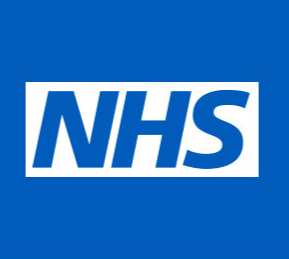
Sponsored content
UCAS Media service
Routes into careers in the NHS
There's more than one way to become a part of the NHS team. Take a look at the different entry routes and whether they are right for you.

Other routes
You could start your NHS career in a suport role such as a healthcare support worker. You'll be at the centre of everything we do, allowing you to build experience for further study, such as becoming a nursing associate or a registered nurse.
Degree
A healthcare degree is a a world-class, established route into many NHS careers, particularly for roles such as nursing, midwifery, or physiotherapy.
You’ll study at a university, often for three to four years, with a mixture of academic teaching and hands-on placements in NHS settings. This allows you to build both your theoretical knowledge and practical skills before entering the workforce.
Universities offer structured programmes that include support from lecturers, access to facilities offering the latest technology and research, and a chance to meet others training for similar roles. For many, this route provides a clear pathway into a professional healthcare career. You may also be supported with full-time study through a grant to help with living costs.
Why do a healthcare degree?
- World-class training that gets you ready for an NHS career from day one
- Gain a recognised qualification that opens doors to many NHS roles
- Have access to university support, student societies, and academic facilities
- Spend up to 50% of the course gaining hands-on experience on your clinical placements
- Learn vital study skills which you can take with you if you want to develop your career further
- Be part of a team of students learning together
Search for healthcare degrees
Browse healthcare degree courses with UCAS and take the first step to the NHS career you love.
Apprenticeships
NHS apprenticeships are a practical way to start an NHS career, combining on-the-job training and experience with structured learning.
You'll find opportunities in a wide range of areas and at different academic levels, from healthcare support roles to more specialised paths like nursing and healthcare science.
As an NHS apprentice, you’ll be employed by an NHS organisation and spend part of your week learning in a real work environment, alongside studying for a nationally recognised qualification. This route offers a chance to develop skills and knowledge while contributing to the lives of patients.
Why do an apprenticeship?
- Get paid while you train and have your tuition fees covered by your employer
- Gain hands-on experience in a healthcare setting
- Learn from experienced professionals while developing practical skills
- Feel well-prepared for the workplace when you finish your apprenticeship
Browse apprenticeship vacancies
Discover live apprenticeship vacancies with UCAS.
Other routes
If a full time degree or apprenticeship isn't for you, there are other ways to kickstart your career. Entry-level roles can be a great starting point in the NHS and can lead to opportunities for in-house training as well as more formal study once you've found your feet.
You could join the NHS workforce as a healthcare support worker for example and after gaining experience move onto a nursing associate apprenticeship. This would give you a chance to carry on earning a salary while building on your practical skills in the workplace, as well as spending some of your time in the classroom to gain a foundation degree. With support from your employer this could lead on to a shortened registered nurse degree apprenticeship, resulting in a registered nurse qualification at the end.
There are also opportunities in other support roles. You could work alongside occupational therapists or radiographers, opening up chances to train as an assistant practitioner in your chosen area. You could then continue your studies and gain a degree as an allied health professional.
These routes give you the chance to take things a bit slower while gaining valuable experience along the way.
Discover your path
Not sure where you fit into the NHS? Take a look at some of the key careers in the organisation today.
Explore NHS Careers
There are over 350 different NHS careers and everyone makes a difference every day. Whether you’re still in education or thinking about changing careers, you'll get the information you need.